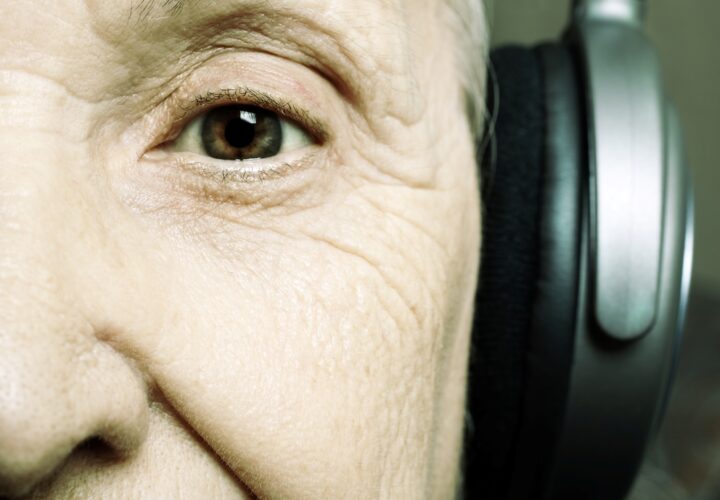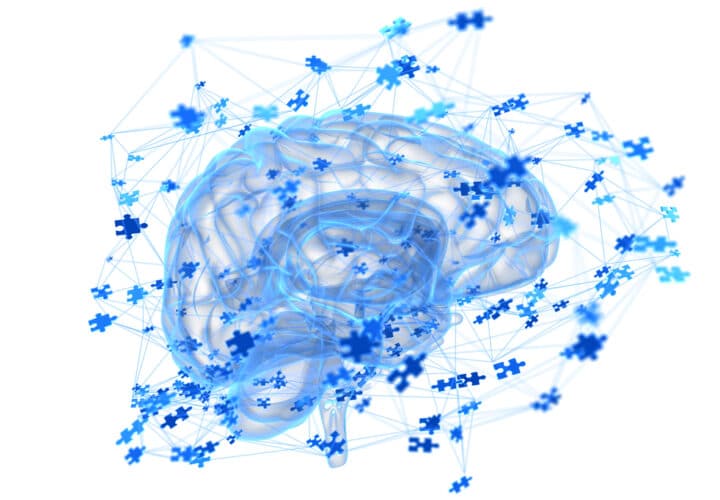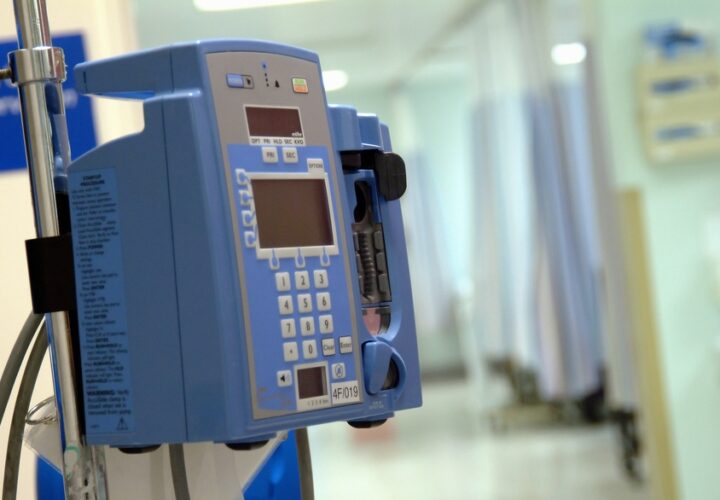The connection between music and Alzheimer’s is the subject of an increasing number of studies–some early evidence even points to music as a potential therapeutic treatment for the disease. It sounds far fetched, but new research is uncovering how it can help patients manage the disease and maybe even recover memories. We asked Séverine Samson, a clinical neuropsychologist at University of Lille, Paris, about her research on the effect of music on the brain. Dr. Samson has conducted the first randomized control trials to test whether musical activities can improve the behavior and mood of dementia patients and has found evidence that they do.
- Music stimulates many parts of the brain, which is why patients with Alzheimer’s may still be able to recall words of songs, but not words in general conversation
- In her study, moods of both patients and caregivers were positively impacted by music and cooking activities
- Music also encouraged physical activity amongst patients, which can be an important part of treatment
Being Patient: Let’s start with the clinical side of your research. What results have you seen in the trials you’ve done?
Séverine Samson: We did a 10 week randomized control trial with 150 patients to address the question: How effective is a non-drug treatment as a complementary treatment for Alzheimer’s patients, or patients with dementia? We compared a music-based intervention with a cooking-based intervention and tested the patients before, during and after the intervention. We analyzed their cognitive status and their behavioral functioning. Our primary outcome was the emotional state, the changes in the mood [of the patients].
We found a very significant effect of the non-drug treatment as compared to nothing, especially for mood. There was an increase in positive mood and we also found a very strong effect on behavior – on [levels of] agitation – when compared to the control group. So it reduced the severity of the disorders a lot, particularly music, probably a little more than cooking. We also looked at caregiver distress and found a very strong impact. And, in some of those measures, after we stopped the intervention we found a return to the baseline level, so we really can relate the changes in our measures to the impact of the intervention. However, we did not notice any effect on cognition. I think they were too severely impaired.
Being Patient: What kinds of activities did you do with the patients?
Séverine Samson: We developed five specific sessions with ten minutes of playing music, 5 minutes of listening and thinking about memories. Five minutes of doing nothing and just leaving the patients to talk. On purpose, we decided to use as many different activities as we could but we controlled the similarity between the music and the cooking. When we used a new recipe in cooking, we used a new music excerpt. When we ask the patient to do a pancake, which they have been making for years and years, we used a very familiar tune. Everything was very well controlled, to be sure that we could not attribute this effect to a non-control factor.
Being Patient: You’re scanning the brain to find out how music might affect the way the brain makes memories. Can you explain what you’re looking for?
Séverine Samson: I’m comparing memory for song lyrics to spoken words and examining the cerebral mechanisms [involved in processing them] in order to understand why people are able to recognize musical information more easily than verbal information, which is what we observed in the patients with memory disorders such as the Alzheimer’s disease.
We look at the specific brain activity during the retrieval of memories, for example, information that you learned yesterday or two days ago. We’ve seen that information that you learned two days ago is better consolidated than recent information. So, we’re looking at this mechanism of memory consolidation, how you really create a memory in your brain. We plan to conduct brain scans on patients with lesions on their brains, to see how effective music is in consolidating information, and how it could help verbal memory. So, if we can explain the brain mechanisms, and demonstrate that there is an underlying [neural] network [at work], then we will be able to propose a therapy designed to reinforce those networks.
Being Patient: What has your research shown you about how music may help in accessing memories?
Séverine Samson: For now, what we’ve found is that there is a big overlap between the neural networks involved in verbal memory and in musical memory. When you present both types of information together [verbal and musical] like within a song, it’s processed in different areas of the brain. So we found an area of strong integration close to the auditory cortex and another one, close to the premotor area. This probably makes music more accessible or [the processing of music] more resistant to a lot of cerebral lesions because it involves so many different areas [of the brain].
Being Patient: Based on what you’ve seen in your research, what would you recommend that caregivers do to help manage the mood and behavior of patients with dementia?
Séverine Samson: Depending on what the patient likes, you can try several activities with them. Any pleasant, group-based activity with social interaction will be very helpful. Patients often experience social isolation because of the decline in their senses and their motor system. If it’s a musical activity, even just listening and finding playlists that they like is helpful. If you can combine those activities with physical movement, it’s probably much more effective. It’s important to get people moving and it’s well known that music can help to initiate physical movement. You don’t necessarily even need to do it for a very long time, if you do it once or twice a week, that’s already a lot.



Anecdotal comment: I had noticed this with my partner when he still lived at home. He remembered and could sing the words, and where we were (and with whom!) when we heard the performer. My partner is now resident in a Memory Care unit and I am searching for a one button unit for him, so I can load in his music of choice to play whenever he wants.
HI Genevieve,
Sorry to hear about your partner. My husband is still at home and loves his music. Did you find a one button unit for your partner? I just thought of that the other day – a one button unit vs. keeping his i-phone ($$) simply for the music availability. We’ve always loved, enjoyed and shared our music.
Wishing you both well.
Joann
Joannhansen@optonline.net
I am a music graduate, with 40+ years of teaching experience. How can I get involved in this kind of work ?